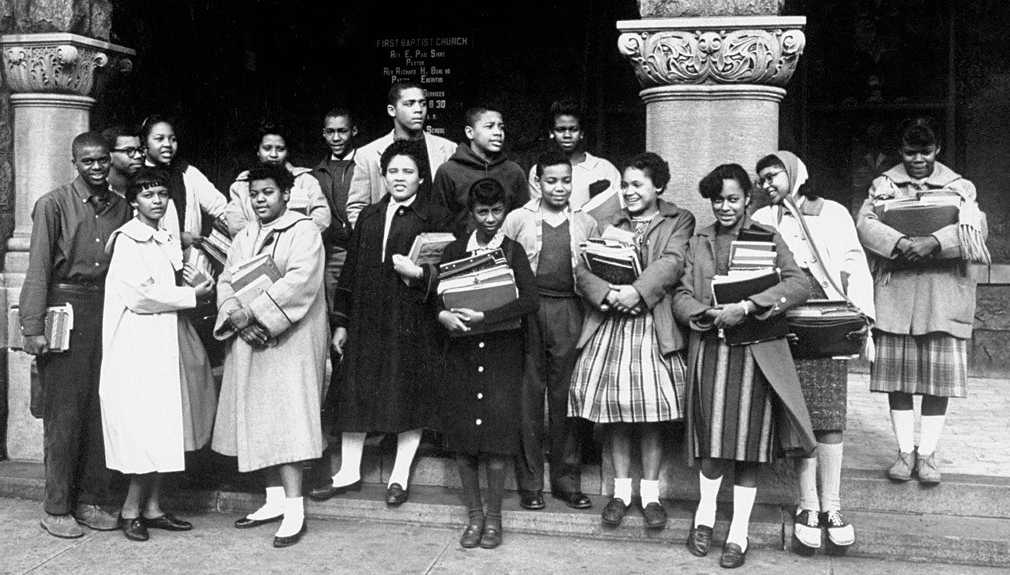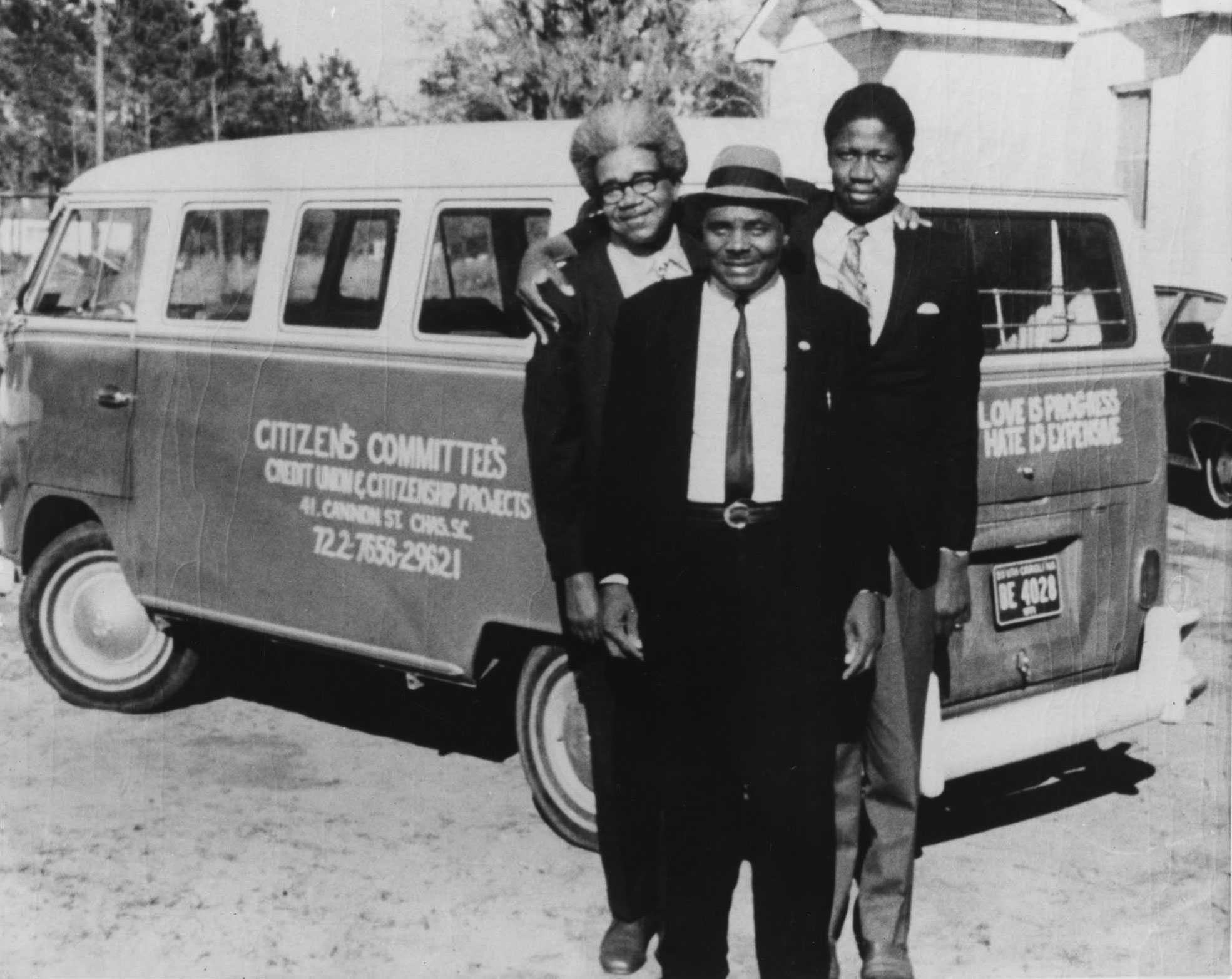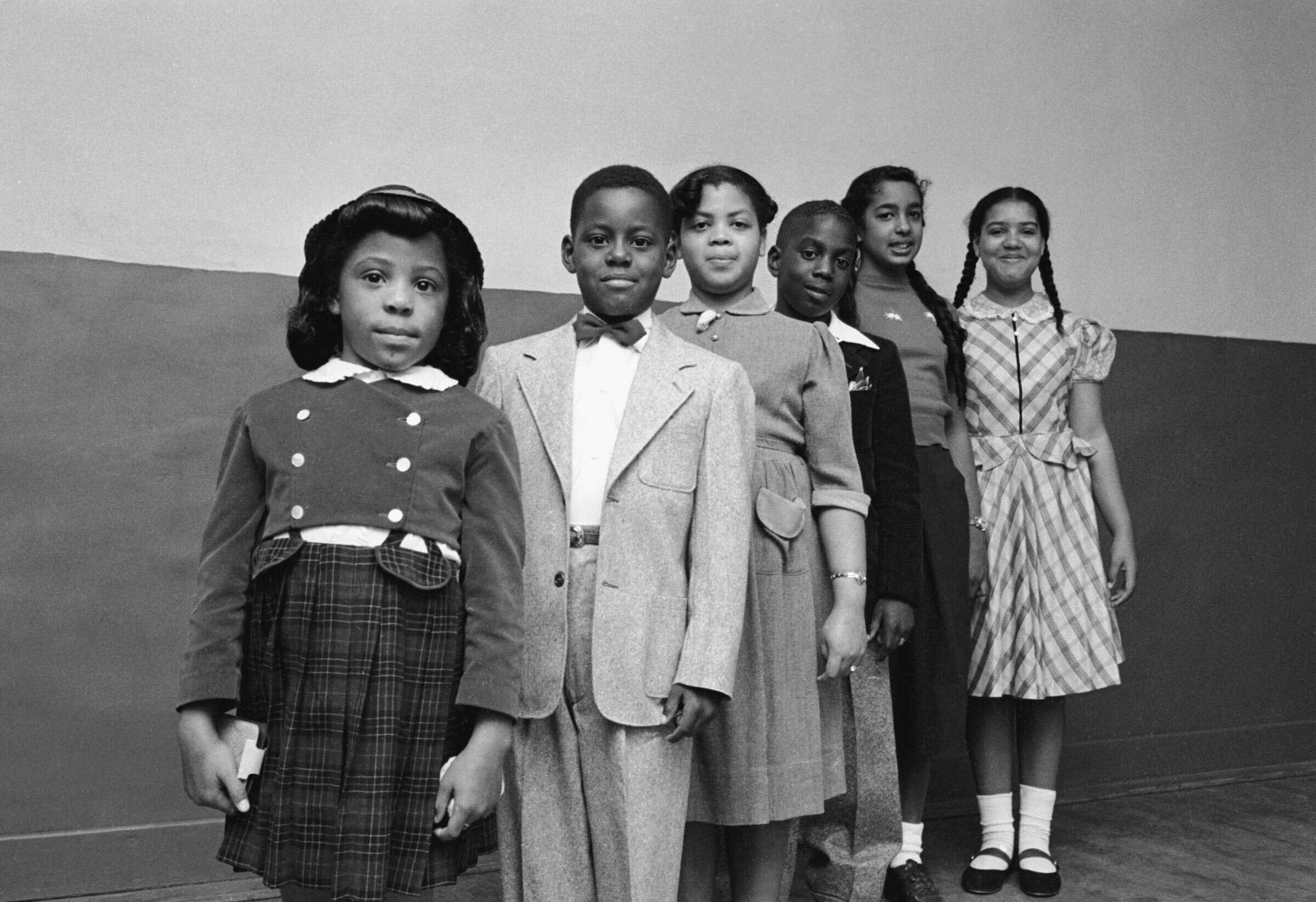Biography
Vivian Carter Mason

Working for Social Justice
Vivian Carter Mason, 1950s
Vivian Carter Mason (1900–1982) was born in Wilkes-Barre, Pennsylvania, and raised in Auburn, New York, where her father pastored a church and her mother taught music. Her parents were active in the Black community and taught their children to value education and protest injustice. Mason attended integrated public schools in Auburn and earned a degree in political economy and social welfare from the University of Chicago. In 1925 she married William Thomas Mason, a real estate and insurance agent based in Norfolk, Virginia. She pursued a career in social work in New York City, where she earned an appointment as the first African American director of the Department of Welfare’s social service division. She was also active in women’s organizations, including the National Council of Negro Women, serving as vice president under founder Mary McLeod Bethune and later as the NCNW’s third president (1953–1957).
Women’s Council for Interracial Cooperation
Summary of Women’s Council’s Work for Schools, 1945–1959
After suffering an injury in a train crash in 1943, Vivian Carter Mason left her job in New York and moved back to Norfolk, Virginia. As she witnessed the poverty and discrimination that Black people experienced in the segregated South, she began seeking out others in the community who shared her interest in social justice. In 1945, Mason convened a group of Black and white women to form the Women’s Council for Interracial Cooperation (WCIC). The WCIC held public meetings, conducted investigations, sponsored programs, and lobbied Norfolk city officials to address racial inequities in education, health care, housing, and employment. The WCIC also aimed to “improve interracial attitudes” and “work towards full citizenship privileges for all.” By building bridges across the racial divide, Mason and her fellow WCIC members inspired other interracial efforts and helped pave the way for desegregation in Norfolk. Yet the fight for equal education would prove to be a long-lasting one.
We are not fighting to be integrated into American life; we have been integrated since the day we were born here. We are fighting for the same rights other Americans enjoy.
Vivian Carter Mason, 1954
Fighting for Equal Education
Norfolk 17 Students at First Baptist Church, 1959
In 1958, four years after the U.S. Supreme Court ordered the desegregation of public schools in Brown v. Board of Education, the Norfolk school board voted to integrate the city’s all-white schools. Virginia Governor James Almond, who backed a policy of “massive resistance” to desegregation, responded by closing all the public schools in Norfolk. Vivian Carter Mason and the WCIC worked with other civic groups to get the schools reopened, raising funds for a lawsuit to challenge the governor’s order, organizing letter-writing campaigns, and arranging tutoring programs for students. In early 1959, federal judges ordered the schools reopened, and the first African American students—known as the “Norfolk 17”—were admitted.
After desegregation, Mason continued her crusade for equal education. She co-founded the Norfolk Committee for the Improvement of Education (NCIE), and in 1971 she became the first Black woman to serve on the Norfolk school board. In 1978 she founded the local chapter of the National Urban League, known today as the Urban League of Hampton Roads, Inc.


